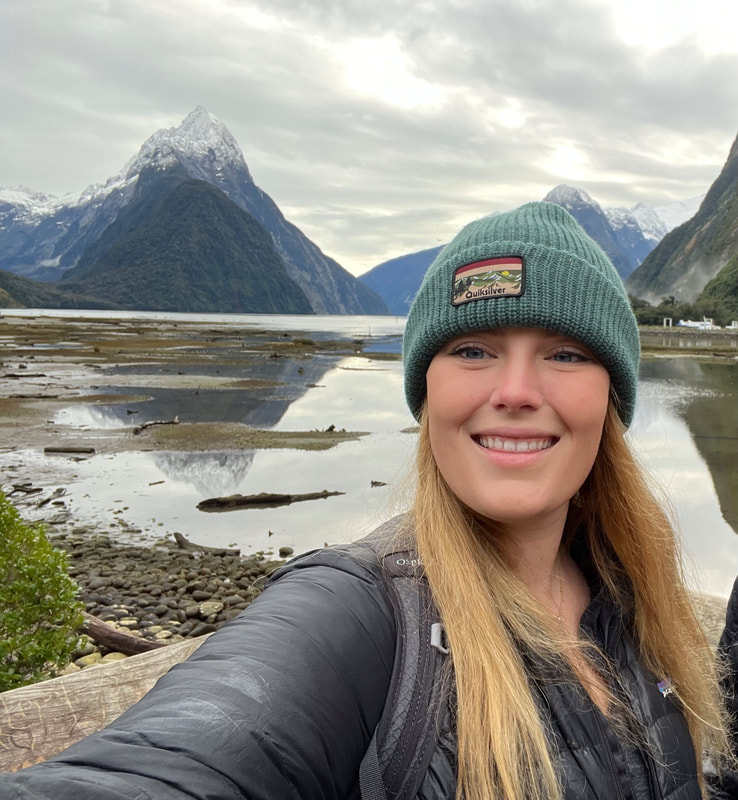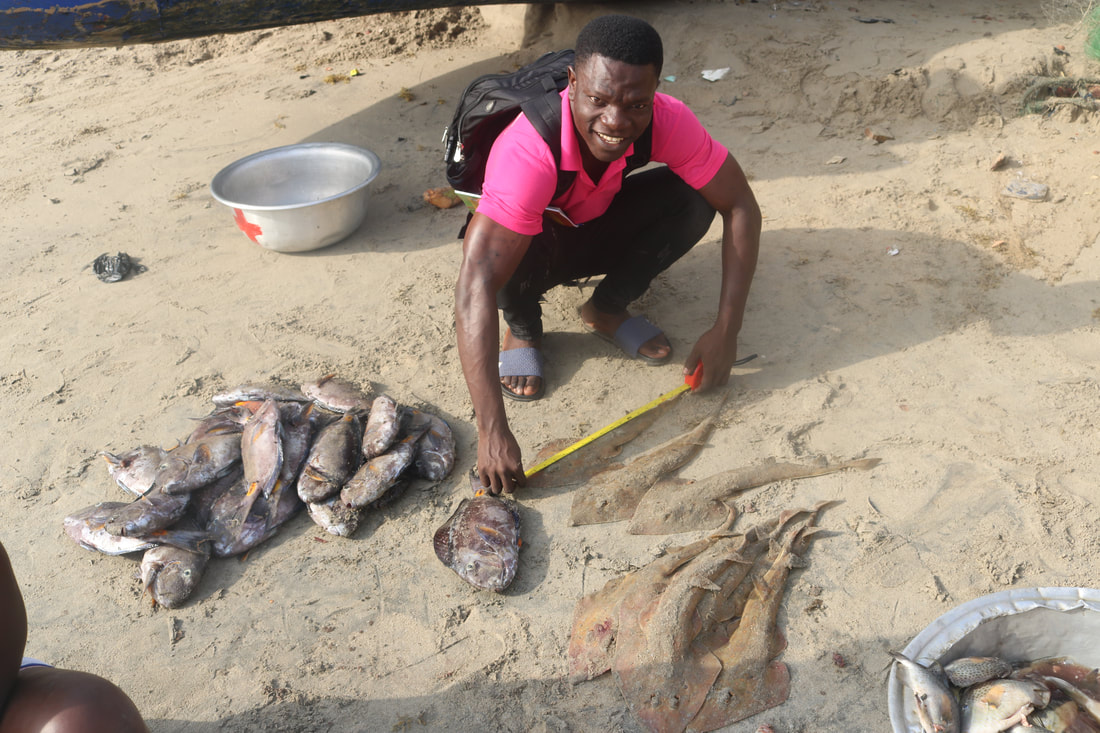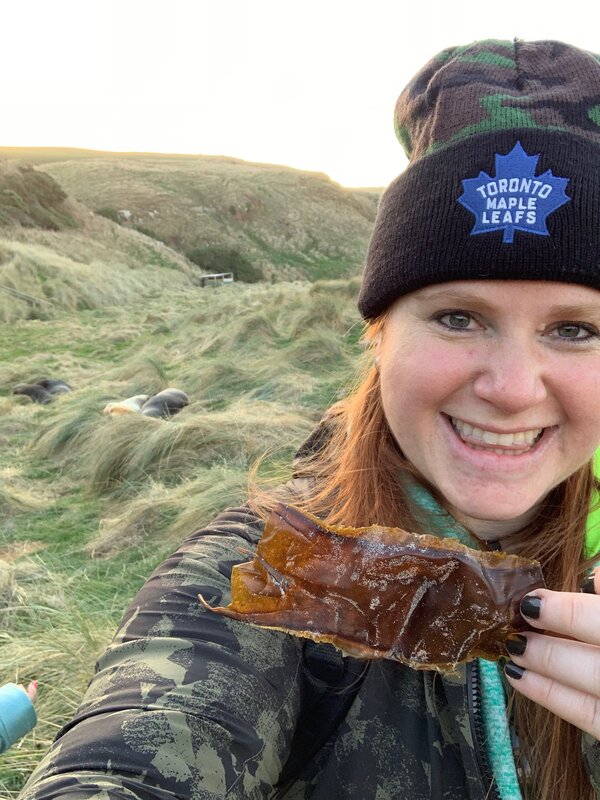|
Hannah Watkins, PhD student visitor from Côté lab and shark hater
https://hannahvwatkins.weebly.com/ https://bayesbaes.github.io/ |
|
Issah Seidu PhD
Small scale fisheries for elasmobranchs in Ghana Seidu I, Brobbey LK, Danquah E, Oppong SK, van Beuningen D and Dulvy NK. (2022) “Every fish in the sea is meat and so are guitarfishes”: Socio-economic drivers of a guitarfish fishery in Ghana. Marine Policy 143, 105159. Seidu I, Brobbey LK, Danquah E, Oppong SK, van Beuningen D, Seidu M and Dulvy NK. (2022) Fishing for survival: Importance of shark fisheries for the livelihoods of coastal communities in Western Ghana. Fisheries Research 246, 106157. |
|
Sam Sherman, Postdoctoral Fellow TRAFFIC, Cambridge & SFU M-risk project -- Assessing the Risk of Overexploitation of the Most Traded Species of Sharks and Rays
Sherman CS, Sant G, Simpfendorfer CA, Diegel ED, Zubick P, Johnson G, Usher M and Dulvy NK. (2022) M-Risk: A framework for assessing global fisheries management efficacy of sharks, rays, and chimaeras. Fish and Fisheries. PREPRINT |
|
Wade VanderWal
MSc student (wvanderw@sfu.ca) Estimating the respiratory surface area of elasmobranchs with dissection and microscopy. VanderWright W, Bigman, J.S., Elcombe, C., and Dulvy, N.K. (2020). Gill slits provide a window into the respiratory physiology of sharks. Conservation Physiology. doi:10.1093/conphys/coaa102 |
Alumni of the Dulvy lab
Lorenzo Alzarez-Filip (lorenzo@cmarl.unam.mx) Principal Researcher, Biodiversity and Reef Conservation (BARCO) Laboratory
Sean C. Anderson (Sean.Anderson'at'dfo-mpo.gc.ca) DFO Program Head in Analytical Approaches and Spatial Stock Assessment
Jennifer Bigman Alaska Fisheries Science Center, NOAA, Seattle
Jessica Cheok AIMS
Zoe Crysler
Lindsay Davidson (ldavidso'at'sfu.ca) UBC Biodiversity PDF
Danielle Derrick IUCN
Eric Digel
Sarah Gravel https://twitter.com/sargravel
Maria José Juan Jorda (mjuanjorda'at'gmail.com) Spanish Oceanographic Institute/ Instituto Español de Oceanografía
Lucy Harrison (harrisonlucy'at'gmail.com ) Environmental Scientist, Project Manager and Team Lead at Stantec
Julia Lawson (jmlawson'at'ucsb.edu) PhD student at UCSB
Chris Mull (creeas'at'gmail.com) PDF in Dalhousie U
Maryam Nakhostin, Fisheries & Oceans Canada Vancouver
Nathan Pacoureau, Fisheries & Oceans, Rimouski
Sebastian Pardo (sebpardo'at'gmail.com) Dalhousie PDF
Riley Pollom, Species Recovery Manager, Seattle Aquarium
Tanya Prinzing
Samm Sherman Senior Lecturer Deakin University
Rowan Trebilco (Rowan.Trebilco'at'utas.edu.au) Ecological Statistician IMAS
Rachel Walls
Serena Wong Pacific Salmon Commission
Sean C. Anderson (Sean.Anderson'at'dfo-mpo.gc.ca) DFO Program Head in Analytical Approaches and Spatial Stock Assessment
Jennifer Bigman Alaska Fisheries Science Center, NOAA, Seattle
Jessica Cheok AIMS
Zoe Crysler
Lindsay Davidson (ldavidso'at'sfu.ca) UBC Biodiversity PDF
Danielle Derrick IUCN
Eric Digel
Sarah Gravel https://twitter.com/sargravel
Maria José Juan Jorda (mjuanjorda'at'gmail.com) Spanish Oceanographic Institute/ Instituto Español de Oceanografía
Lucy Harrison (harrisonlucy'at'gmail.com ) Environmental Scientist, Project Manager and Team Lead at Stantec
Julia Lawson (jmlawson'at'ucsb.edu) PhD student at UCSB
Chris Mull (creeas'at'gmail.com) PDF in Dalhousie U
Maryam Nakhostin, Fisheries & Oceans Canada Vancouver
Nathan Pacoureau, Fisheries & Oceans, Rimouski
Sebastian Pardo (sebpardo'at'gmail.com) Dalhousie PDF
Riley Pollom, Species Recovery Manager, Seattle Aquarium
Tanya Prinzing
Samm Sherman Senior Lecturer Deakin University
Rowan Trebilco (Rowan.Trebilco'at'utas.edu.au) Ecological Statistician IMAS
Rachel Walls
Serena Wong Pacific Salmon Commission












